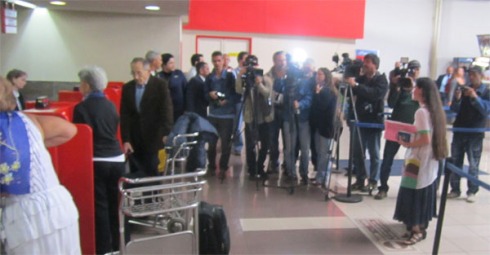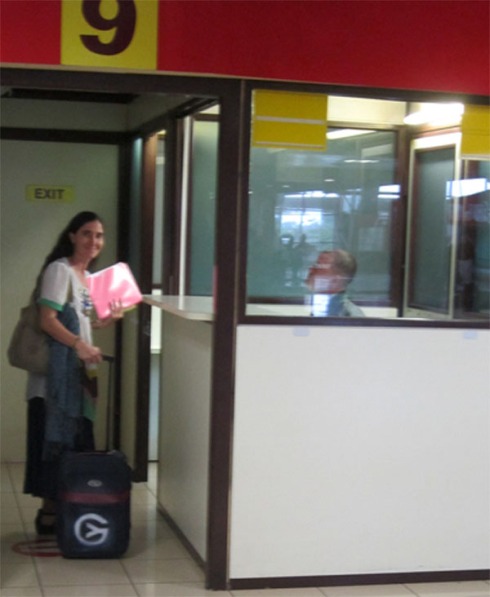 After receiving 20 refusals for an Exit Permit over the last five years, yesterday, Sunday, the blogger Yoani Sanchez crossed the border of Jose Marti airport in Havana to fly to Brazil.
After receiving 20 refusals for an Exit Permit over the last five years, yesterday, Sunday, the blogger Yoani Sanchez crossed the border of Jose Marti airport in Havana to fly to Brazil.
A dozen countries are included in this trip to accept academic invitations and attend social networking and media events. If, as has been said, Yoani was the thermometer to measure the scope of the new travel regulations, we have to accept that — despite its limitations — this is the most important reform implemented by Raul Castro in the political and social realm. A few hours earlier Rosa María Payá, daughter of the deceased opponent Oswaldo Payá, had headed for Europe and now other prominent personalities of civil society, such as Dagoberto Valdez, Berta Soler and Wilfredo Vallin, are arranging their visas.
Currently the travel restrictions are being maintained only against those who were imprisoned during the Black Spring of 2003 and who now “enjoy” the status of being on parole but have not been pardoned or reprieved, so by law they are considered to have outstanding convictions.
The presence abroad of those who are now crossing the national borders represents the exercise of popular diplomacy by citizen ambassadors. It breaks the monopoly of the Cuban authorities and its official sector, as the “tolerated inconvenient” spread a version of our reality.
 18 February 2013
18 February 2013
